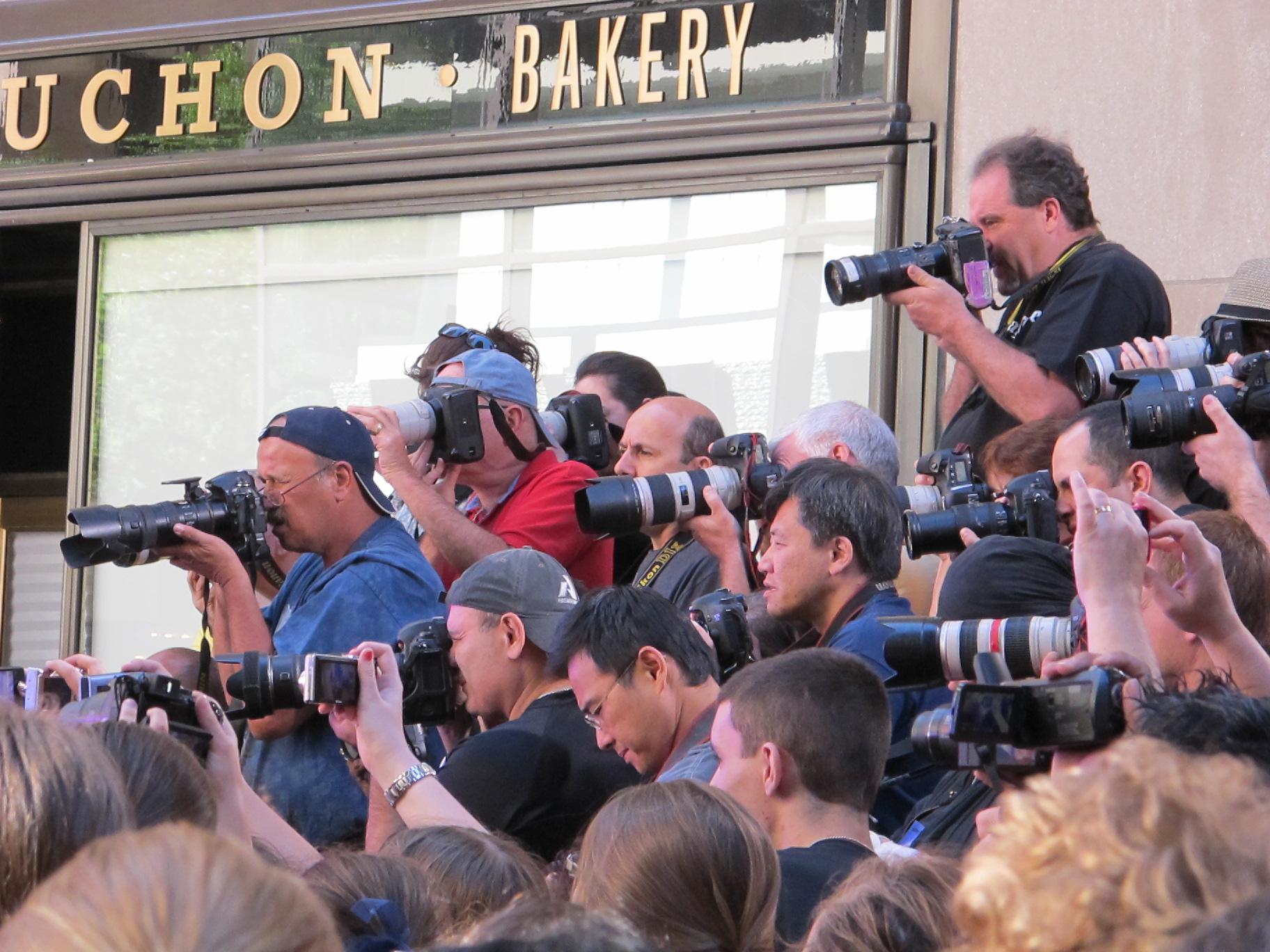 A key element of open access is the notion that circulating information is de facto a positive good. Audiences benefit from access, and scholars benefit from exposure. But for the latter, at least, there is a case to be made for a more subtle approach. Scholars do want their research to be shared widely, but not always immediately and not necessarily unless they feel it’s ready for sharing.
A key element of open access is the notion that circulating information is de facto a positive good. Audiences benefit from access, and scholars benefit from exposure. But for the latter, at least, there is a case to be made for a more subtle approach. Scholars do want their research to be shared widely, but not always immediately and not necessarily unless they feel it’s ready for sharing.
A related proposition is that more is better: more clicks, more RTs, more downloads, and more citations. I’ve wondered about this in regard to citations. In fact, it’s the more that seems to unsettle some when it comes to exposure, and I’ve been reminded of this in two very different contexts that share an interesting constituency: younger scholars, especially recent PhDs.
The first is the subduction zone of conferences and social media. At our recent conferences the Omohundro Institute has offered a “Twittiquette,” a guide to live tweeting. It included an opt out, in the form of “no tweeting” signs on the dais, by request. This was prompted by a variety of factors, but among them was the discomfort that some, especially younger, scholars expressed at having their research synthesized and shared through social media. I live tweet, albeit not particularly well, and I’m impressed by the way that conference tweeting can bring a larger audience into the room. But it is absolutely fair as we launch into the Twitter verse, to be cognizant of the Twitter averse as well. Personal inclinations and experiences differ. So, too, do perceptions about the relative benefits of exposure.
The second and much more familiar context that reminds me of these differing views of exposure is the evolving pattern of dissertation embargoes. (Some might say that the consequences of having a conference paper discussed on Twitter and a full dissertation circulated are very different; that’s true enough, but not necessarily in scale. Politically sensitive research, on race, gender, or sexuality, for example, could arguably attract more social media attention than a dissertation.)
There was a lot of attention two summers ago to the American Historical Association statement that “strongly encourage[d] graduate programs and university libraries to adopt a policy that allows the embargoing of completed history PhD dissertations in digital form for as many as six years.” Since then there has been more discussion within the historical profession. There is also some indication that the AHA statement either had a direct impact on or correlates to a significant rise in the rates of dissertation embargoes.
Here’s the quick backstory: dissertations have (mostly) been widely available for decades, first through microfilm (anybody remember UMI?) and then in electronic form since the late 1990s through the company it has become, Proquest. But it took some doing (and time) to request a dissertation from UMI, and it takes no time at all to access many dissertations on Proquest — that’s part of the pitch, of course, Discoverability and accessibility= more exposure. But that exposure plays differently in different disciplines. For creative writers and for humanists, for whom narrative structure and argument are the research product, the potential disruption to publication plans could be concerning. That concern is one of the factors prompting the AHA review and statement. Other issues around permissions to reproduce copyrighted material, including images, also play a role.
Audrey Truschke wrote a very thoughtful three-part series earlier this year exploring some of the issues related to embargoes and embargo rates in which she mentioned a Dissertation Reviews survey with approximately 350 respondents. Of those, over 40% had chosen to embargo their dissertations. Truschke also cited a higher figure for Stanford University, across disciplines, in 2014: 46% of students embargoed their dissertations.
Proquest now reports a general figure for embargoes “in the 20% range.” This is consistent with 19% cited in late 2013. They also note that they are seeing a spike in some universities and in some disciplines, perhaps as a result of the AHA statement, perhaps as a result of the kind of reviews that have taken place at my own university. At William & Mary, after a period of automatic open access for all dissertations submitted to Proquest, a recent review is recommending that rather than automatic open access, or even automatic open access with an option to embargo and a mandated limit on the embargo period, students and their advisors must attest that they have discussed the options, advantages and disadvantages particular to that student and their work before committing one way or the other.
The University of Texas seems to have experienced a rethinking similar to William & Mary’s. An initial plan for the uniform implementation of open access theses and dissertations has been reconsidered to respond to concerns from a variety of groups, including graduate students in Creative Writing. At last year’s Electronic Theses and Dissertations Association meeting Renee Babcock reported that while UT librarians and graduate school staff who had advocated for the full open access of ETDs thought everyone was “working toward the same goals. . . we weren’t.” She went on to recommend that campuses “think about the need of various constituencies, and talk to them before implementing your policies.”
The data on embargoes is still inconclusive, and it’s unclear there is a method that could measure the full impact of either embargo or open access for dissertations. Not only do disciplines have different practices that may make embargoes seem more or less appealing, but fields within those fields differ in the value that might be gained by more—or less—exposure. And in the end there may be a critical decision to be made that reflects either simple preference or the carefully crafted career strategy of an individual scholar about when, whether by tweet or by Google, their research comes under the bright lights.
Discussion
5 Thoughts on "Is Exposure Always a Good Thing?"
The problem, IMHO, is that institutions have embargo policies when it comes to depositing dissertations. These policies–developed in good faith at a particular point of time, under a particular set of conditiions–become codified into a final checklist when a student is about to graduate. As I wrote about my own experience at Cornell, one could fight with the dissertation lady, the graduate school, and the library over these policies, but it is much easier to simply follow the routine. While these policies were set up with the best intent for the student, they can be patronizing, assuming those who formulated the policy know what is best for the student. Personally, I would have been better off if Cornell and ProQuest had merely offered me a service and let me decide what was right for my dissertation and my career.
The “no tweeting” opt out is not as effective as it could be, because there is an enormous level of social pressure put upon speakers to opt in. I’ve particularly seen this at computational biology meetings, where anyone asking for no tweets is looked at with disdain. Most researchers I know have compensated for this by not being willing to speak publicly about any research that has not yet been published. This returns some control over the public dissemination of their work, but has certainly made meetings a lot less interesting and a lot less valuable.
The Medieval Academy of America followed the AHA in recommending up to six years as an embargo period at the option of the student. I wrote an article years ago citing some evidence that showed the availability of a dissertation on ProQuest had an effect on sales of books based on dissertations, as I was told by the Yankee Book Peddlar rep that YBP acted on instructions from some libraries to exclude revised dissertations from approval plans. This was later disputed by another YBP rep, but it remain an open question in my mind, as the sales I tracked over 20 years in Latin American studies monographs at Penn State Press showed a pattern of around 25% lower sales for revised dissertations than for other books. Then may, of course, be other explanations for lower sales of revised dissertations.



